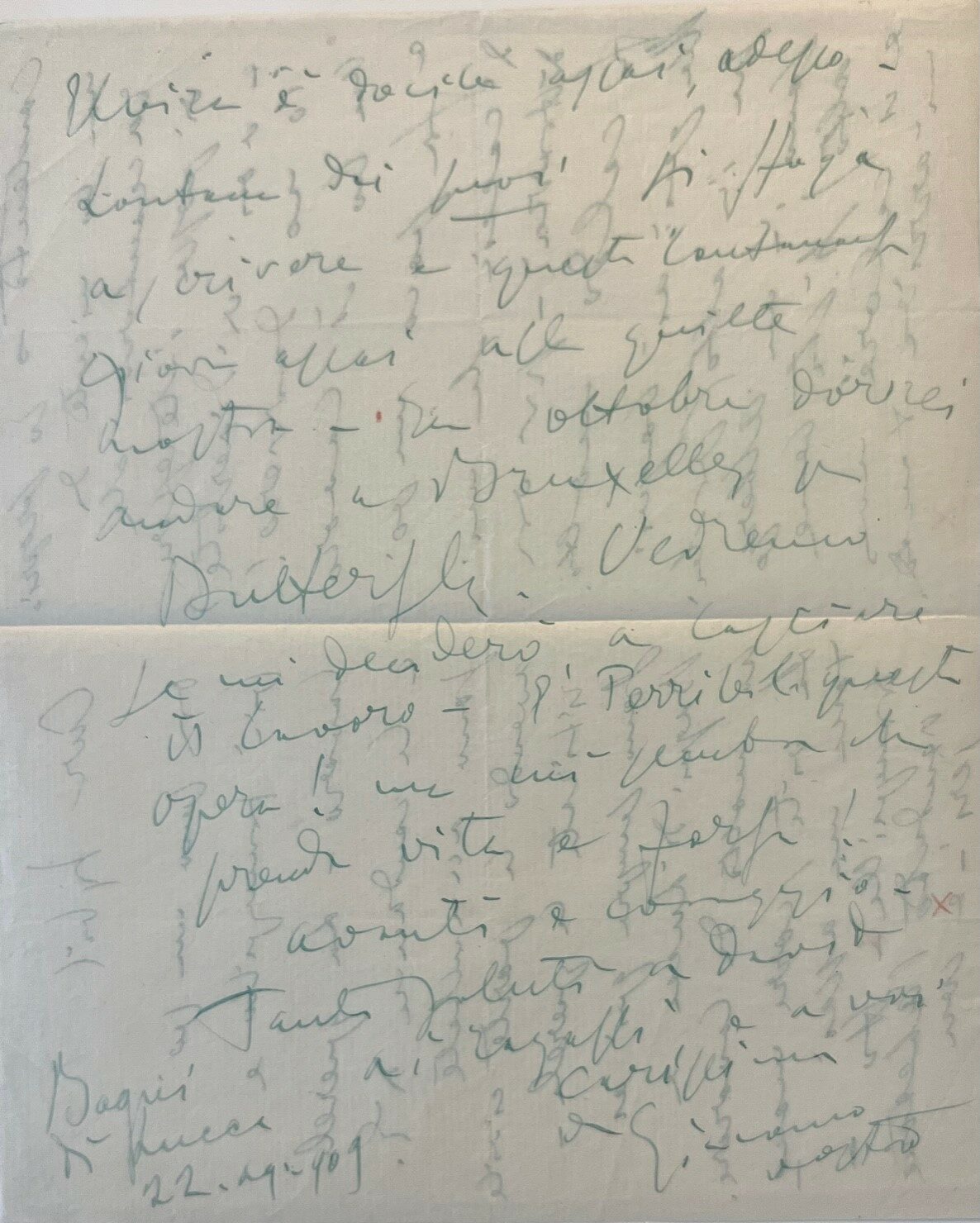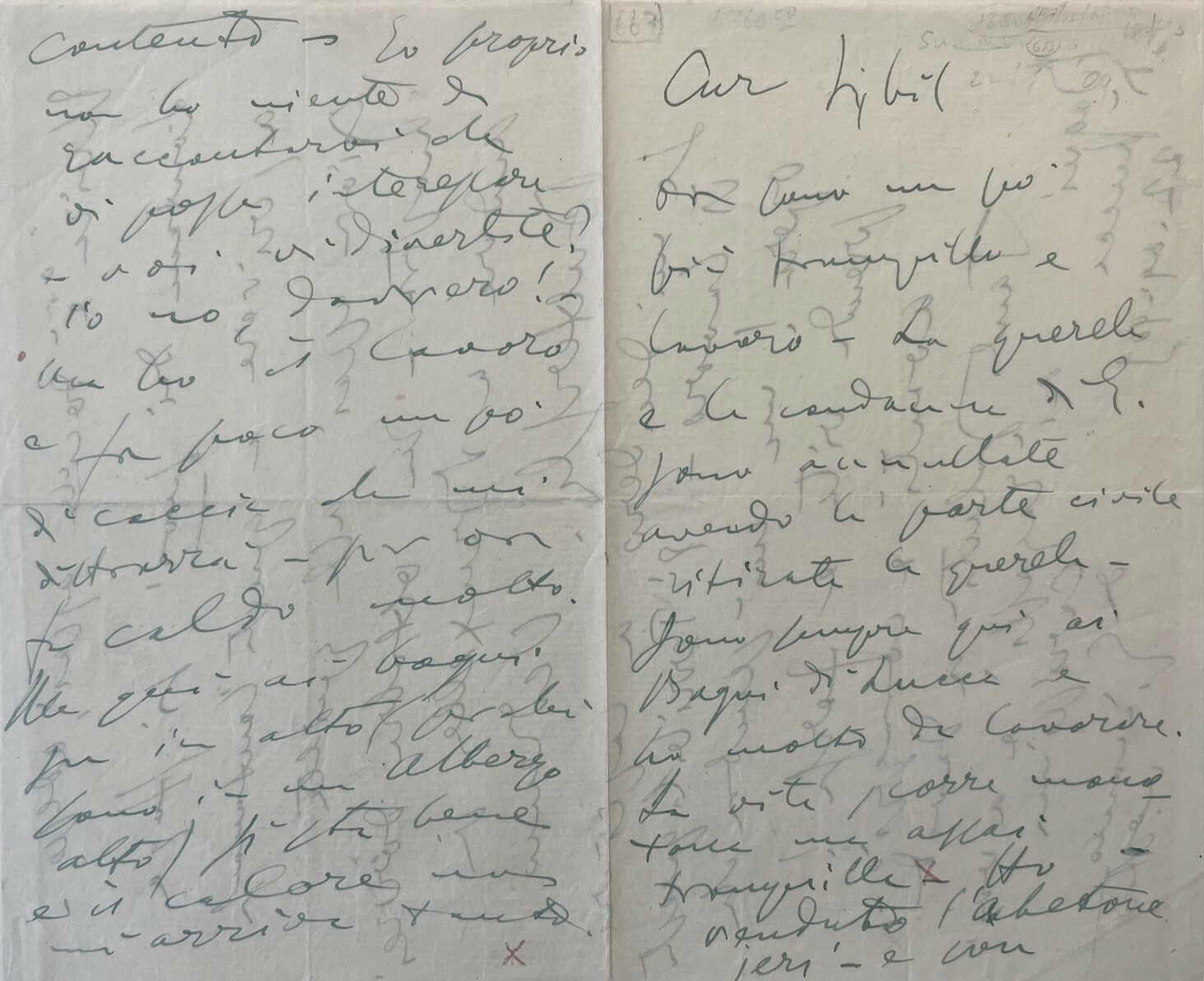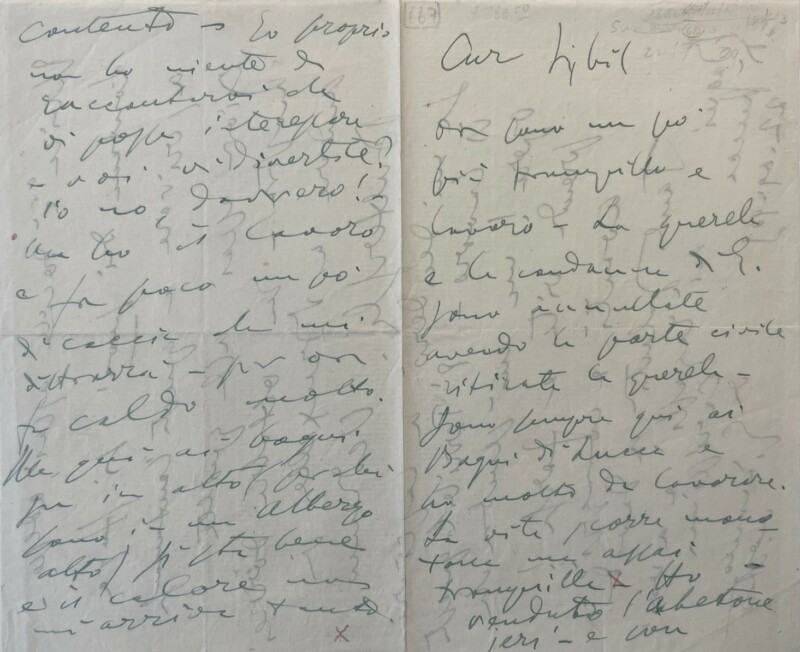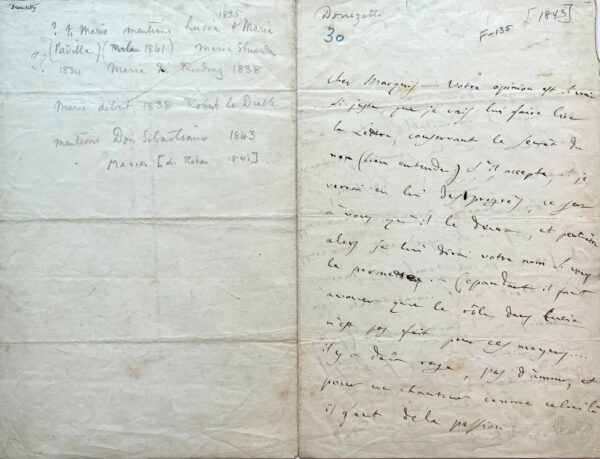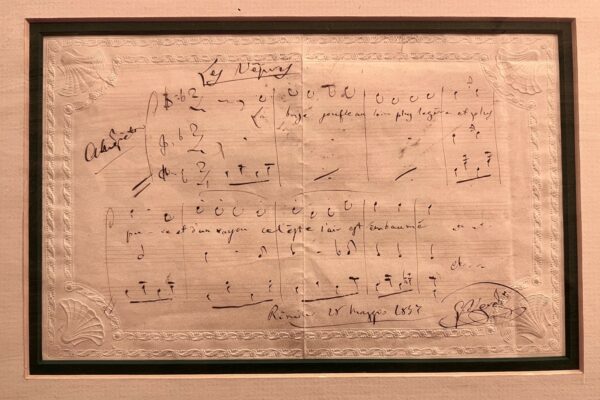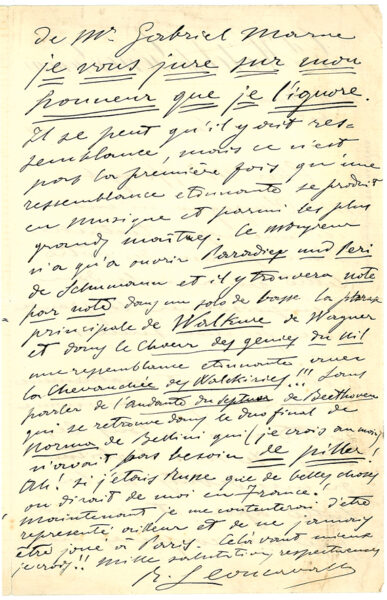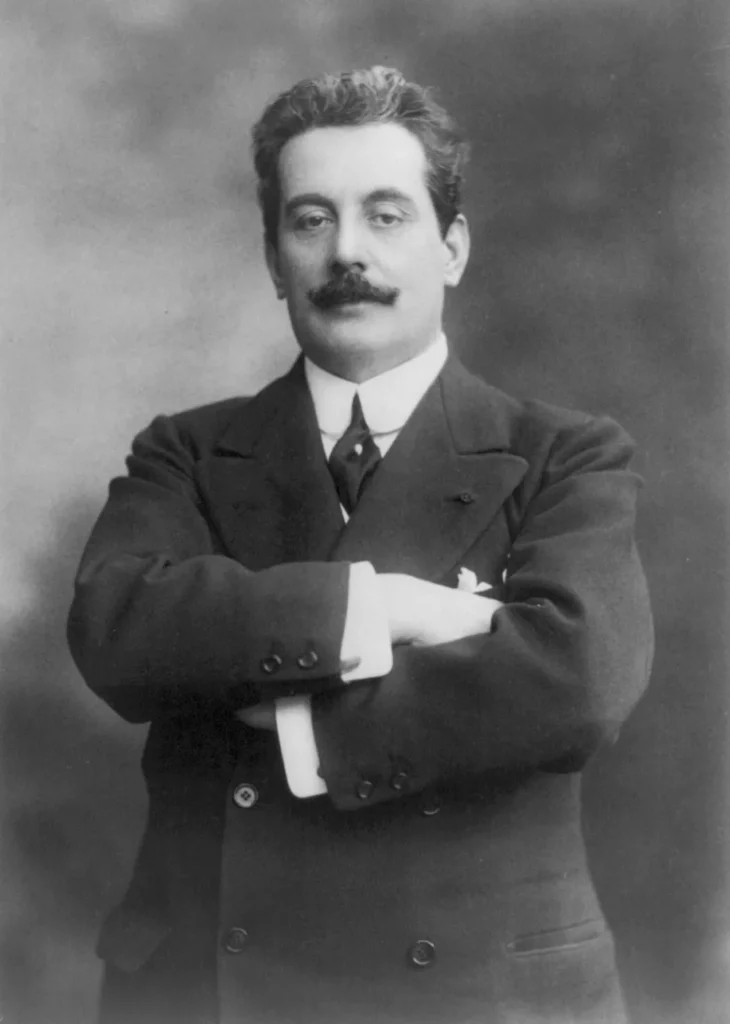
Giacomo Puccini
In 1908, while living in Torre del Lago and hard at work on La fanciulla del West (The Girl of the Golden West), Puccini’s wife, Elvira, became jealous of a servant girl in the Puccini’s employ, Doria Manfredi, and accused her of carrying on an affair with her husband. According to Vincent Seligman’s recollections, Doria was Elvira’s devoted and selfless attendant, but “certain whisperings” reached the ear of the irrational Elvira, who turned the house into a state of chaos. Elvira, “hounded the wretched girl out of the house with every circumstance of ignominy, having been careful to inform the whole village that her dismissal was due to her immoral relations with her employer,” (Puccini Among Friends, Seligman). Dishonored and desperate, Doria swallowed arsenic and killed herself. Her family, suspicious of the accusation, insisted upon an autopsy. which determined that she had died a virgin. They brought and won a suit against Elvira, unleashing one of the most famous scandals of the time and in the history of music. The Puccini’s paid damages and eventually “adjusted themselves to a coexistence, but the composer from then on demanded absolute freedom of action,” (Encyclopaedia Britannica). Nevertheless, “the publicity associated with [the case] affected the hypersensitive and extremely vulnerable composer to such an extent that for some time afterwards his creative energy and desire to work were impaired,” (The New Grove Dictionary).
Our remarkable letter reveals the depth that the scandal made on Puccini, who still writes of it tensely more than a year later. The first performance of Puccini’s Madame Butterfly on February 17, 1904 was an unprecedented disaster, “with the public whistling, shouting and making ironic remarks about the heroine,” (ibid.). Puccini withdrew the opera after a single performance, and radically revised it recasting the notorious story of a young sorrowing woman, from two into three acts. This less “terrible’” version premiered at Brescia on May 28, 1904, to great acclaim, and premiered in Brussels on October 29, 1909.
At the time of our letter, Puccini was still working on La fanciulla del West, but due to the strain brought on by the Doria affair, the opera was not ready until December 1910. Its successful premier at New York’s Metropolitan Opera was under the baton of Arturo Toscanini.
Boldly penned in bright green ink and in very fine condition. A surprisingly fine and interesting example. Letters by Puccini referring to the Doria affair are rare.

